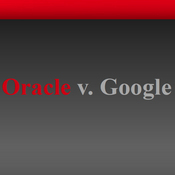
(click image for larger view and for slideshow)
Google on Tuesday filed a motion asking the judge hearing Oracle’s copyright and patent lawsuit against Google to declare a mistrial.
Google’s legal team on Monday indicated it would seek a new trial when the jury returned an incomplete verdict. The jury found that Google had infringed on some of Oracle’s copyrighted Java APIs, though not to the extent that Oracle had hoped. But the jurors were unable to agree on whether Google’s use of Java in its Android operating system was permissible fair use.
“Although the jury concluded that Oracle had proven that Google infringed the overall structure, sequence and organization of the copyrighted works, the jury did not reach a unanimous verdict as to whether Google had proven the affirmative defense of fair use,” Google’s filing says. “Under settled Supreme Court and Ninth Circuit law, the jury’s failure to reach a verdict concerning both halves of this indivisible question requires a new trial concerning both questions.”
[ Read Google Copied Java, Jury Says; Fair Use Question Open
. ]
Google argues that accepting the finding of infringement and retrying only the issue of fair use violates its Seventh Amendment trial rights.
Oracle in its response acknowledges that a retrial would be costly and time-consuming and proposes that the court rule on whether Google’s actions qualify as fair use. It also reiterated its claim for a share of Android’s profits in addition to other damages, if fair use is not found.
The judge hearing the case, William Alsup, said on Monday that Oracle’s claim for “infringer’s profits” was “bordering on the ridiculous.”
Google also filed a motion opposing Oracle’s claim that the court should disallow Google’s effort to challenge Oracle’s ownership of the copyrights at issue. Google insists the issue of ownership is not settled because Oracle has not demonstrated that it owns a copyright to Java as a collective work–the evidence introduced so far at trial indicates that Java is registered as a single work. Google’s filing says Oracle’s claim “is as if Tolstoy argued that his copyright rights in War Peace were violated by copying a dozen sentences from the novel because those sentences were individual works.”
While the two sides await rulings on their motions, the trial continued on Wednesday, with Oracle trying to prove its Java patents were infringed.
Google’s desire for a new trial might serve to encourage Judge Alsup to rule on the copyrightability of Oracle’s Java APIs, widely seen as the critical issue in the case. Judges generally prefer not to rule on issues unnecessarily, and had the jury excused Google’s actions as fair use or found no infringement, Judge Alsup would not need to decide whether APIs qualify for copyright protection.
Oracle’s claim that its Java APIs qualify for copyright protection has prompted widespread concern in the technical community. If Oracle prevails, many fear that software development will become expensive or impermissible in certain circumstances due to licensing demands from owners of copyrighted code.
“Treating APIs as copyrightable would have a profound negative impact on interoperability, and, therefore, innovation,” wrote EFF Attorney Julie Samuels in a post on Monday. “APIs are ubiquitous and fundamental to all kinds of program development. It is safe to say that all software developers use APIs to make their software work with other software.”
Michael Risch, associate professor of law at Villanova University, believes that the court will rule APIs cannot be copyrighted to the extent that Oracle claims. Based on what he has read of the court proceedings, Risch on Wednesday wrote, “I think that the court will have no choice but to hold that the collection of API names is uncopyrightable–at least at this level of abstraction and claimed infringement.”
Last week, the Court of Justice of the European Union said as much when it found that neither the functionality of a computer program nor the format of its data files qualify for copyright protection. The judge has asked Oracle and Google to offer opinions on the foreign court’s ruling as it pertains to Oracle’s claim.
InformationWeek is conducting a survey to get a baseline look at where enterprises stand on their IPv6 deployments, with a focus on problem areas, including security, training, budget, and readiness. Upon completion of our survey, you will be eligible to enter a drawing to receive an 16-GB Apple iPad. Take our InformationWeek IPv6 Survey now. Survey ends May 11.
Article source: http://www.informationweek.com/news/development/java/240000070
